Mastering for Christian Music
Quick Answer
Mastering for Christian Music is the process of preparing an album for distribution while keeping the sonic characteristics of Christian music in mind. Depending on the genre, mastering for Christian music may mean emphasizing transients and dynamics over loudness, or working to create a polished pop-centric master.
Mastering for Christian Music in Detail
At first, you may be asking, what makes mastering for Christian music different than mastering for any other genre? What about Christian music changes the mastering process?

The instrumentation used for Christian music changes how it's mastered.
In short, Christian music typically utilizes specific instrumentation and effects, with the end goal being to create something that sounds grand, large, and ethereal. The instrumentation and the processing used to create this sound need to be mastered in such a way, to emphasize these elements and make them translate to an audience.
This is especially important when you consider the popularity of Christian concerts - typically speaking, those who listen to Christian records, often hear that music at a large concert, be it in a church, cathedral, or stadium.

Because concert-going is such a popular aspect of Christian Music, the recording often mimics a live performance in many ways.
Although we won’t be delving too deeply into the most technical aspects of mastering, we will be discussing the unique sonic characteristics that Christian music incorporates, and how these characteristics are best processed during the mastering stages.
Keep in mind that although we’ll be discussing Christian music in a general sense, the genre itself can span multiple genres and sub-genres. This, of course, means that the approach to mastering each Christian album should be specific to that song, EP or album.

Christian music can span many genres, meaning mastering Christian music can vary.
With that said we’ll also be covering some of these genres, and how the instrumentation and effects used in those mixes, affect the mastering process as well.
Before we start delving into some of the technical aspects of mastering as it relates to Christian music, let’s discuss why mastering is needed at all, and how it can help make your release sound great.
If at any point you’d like to hear your music mastered, send it to us here:
We’ll master it for you and send you a free mastered sample of your mix.
Why is Mastering Needed?
Mastering is needed to prepare an album for distribution - or in other words, to make it sound great on multiple playback systems. Mastering is also needed if you intend to have your song played on a radio station, or used for other promotional and commercial purposes.
A recording goes through many phases. It starts during the tracking process, moves to editing, mixing, and then finally mastering. While tracking, editing, and mixing all include very technical elements, this is especially true for mastering.
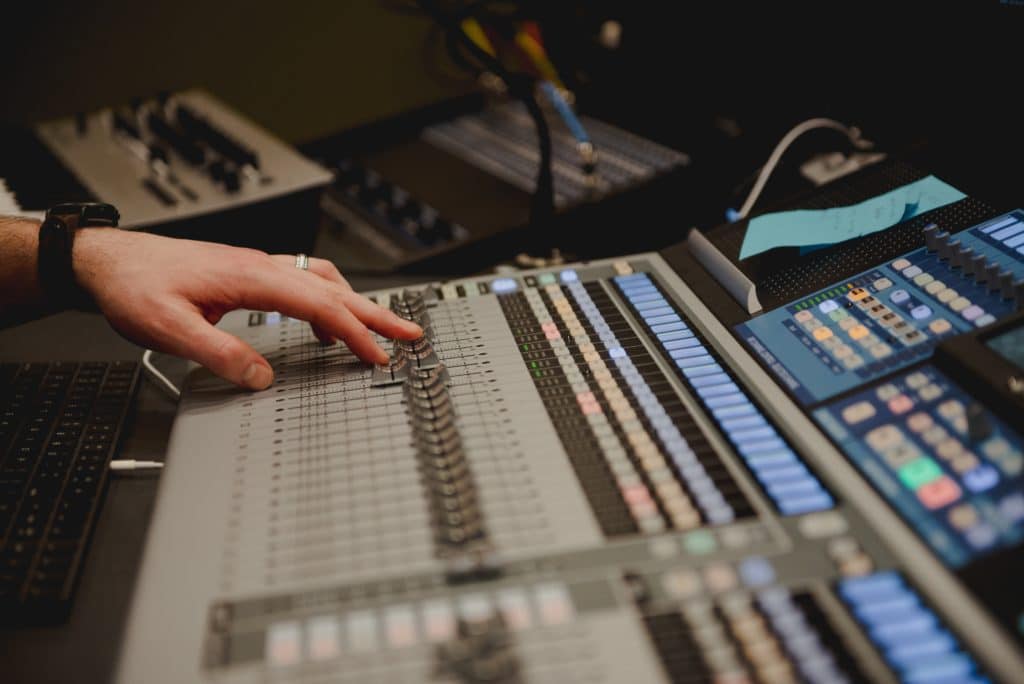
Although mixing, and other recording steps are inherently technical, mastering means needing to keep many technical factors in mind.
When you consider the technical limitations of playback systems like car stereos, or the physical limitations of music mediums like the CD or vinyl record, mastering entails keeping multiple technical factors in mind at all times.
Granted, the ultimate goal of mastering is to make your release sound great; however, this means making it sound great to all listeners - not just those with great speaker systems or studios.

The medium onto which music is recorded affects the mastering process.
Let’s sum this up with a list of why mastering is needed, and why it’s a good decision if you intend to create Christian music.
Why Mastering is Needed:
- Mastering ensures sonic quality on all playback systems
- Mastering optimizes a recording for a specific music medium, like a CD or vinyl record
- Mastering prepares an album for digital distribution, be it Spotify, Apple Music or so on
- Mastering makes your release sound competitive amongst other somewhat similar releases
- Mastering your release gives you a better chance of receiving radio play or promotion
- Mastering prepares your release for sync licensing
If you’d like to understanding mastering a bit more, check out our blog post titled:
It covers the topic extensively and can be a good source of information if you’d like to learn more.
What Makes Christian Music Unique Sonically?
Although all Christian music will vary from track to track, typically speaking Christian music utilizes large groups of instruments to accomplish a large, or anthemic sound. Christian music will also often include larger reverb times during the mixing process to create the feel of a concert-going experience.

Longer reverb times often evoke a sense of being at a large concert hall.
So what does this have to do with mastering?
Generally speaking, the production style and the instrumentation used during the recording process affect how a track, EP, or album will be mastered. So for example, if you were to master a Christian track that was more rock-oriented in its instrumentation, this would result in a slower attack and quicker release compressor times.

This particular compressor has a very slow release time and is great for smoothing out the sound it processes.
Let’s delve a little deeper into how genre affects the settings used for different forms of processing.
But first, let’s define a few terms just to make things clear.
Dynamic Range **: When mastering, dynamic range refers to the relationship between the loudest and quietest parts of a master.It can also be used to refer to any amplitude relationships between two or more points of the song.**
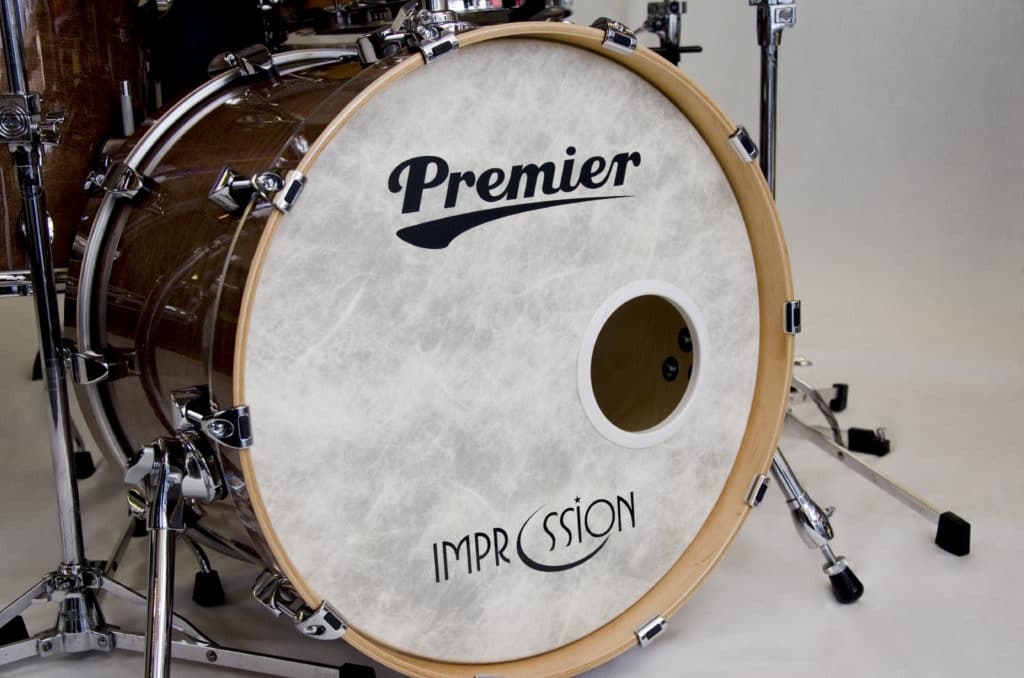
The kick is the most common highly dynamic instrument. It plays a large role in keeping recordings dynamic.
Example: A large kick adds a lot of dynamic range, as it causes a large increase in overall amplitude in the lower frequency spectrum.
ADSR : The ADSR or Attack, Decay, Sustain, Release is the visualization of a sound source, which can be used to better understand the shape and timbre of a sound.Every instrument has an attack, decay, sustain, and release which when combined make up that sound’s identifying characteristics.The ADSR can best be understood as a measurement of amplitude over time.
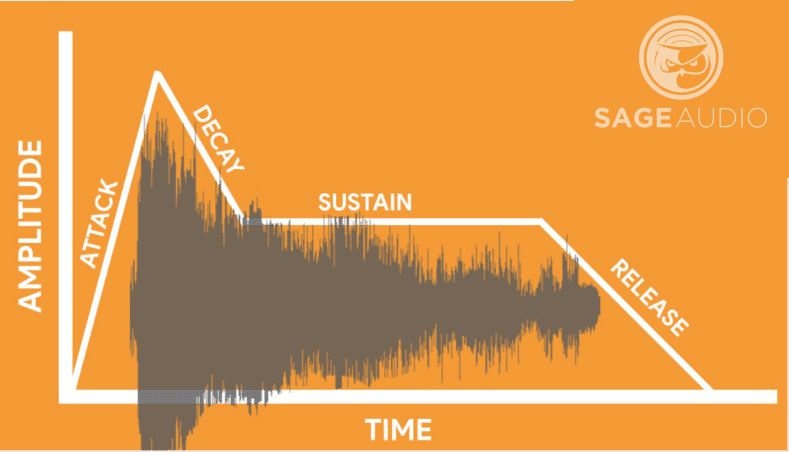
Attack, decay, sustain, and release make up the timbre of a sound source.
Example: A snare drum has a loud, quick attack and quick decay, short sustain, and release. Typically when you hear a snare, you hear a loud smack that quickly dies off. Because there is no sustain, the snare’s sound doesn’t exist over a long period of time.
Transients : The term transient is often used to refer to the snap of a snare or the pluck of a guitar. In technical terms, the transient is the attack and decay aspect of the ADSR just described.Transients add definition and indelibility to a sound source and are often the most identifying element of an instrument.

A snare is considered a very transient instrument.
Example: Being an incredibly important aspect of identifying a sound source, if you were to replace the attack and decay of a trumpet with the attack and decay of a french horn, the sound would be identified as a french horn. This is true for many instruments and demonstrates the transient’s role in adding character to a sound source.
Compression : Compression is a processing type that allows for the amplitude of a sound source to be attenuated.Compression plays an essential role when affecting a sound source’s dynamic range, ADSR, and transients.The ability to affect these different aspects of a recording rests primarily in the attack and release functions of a compressor.
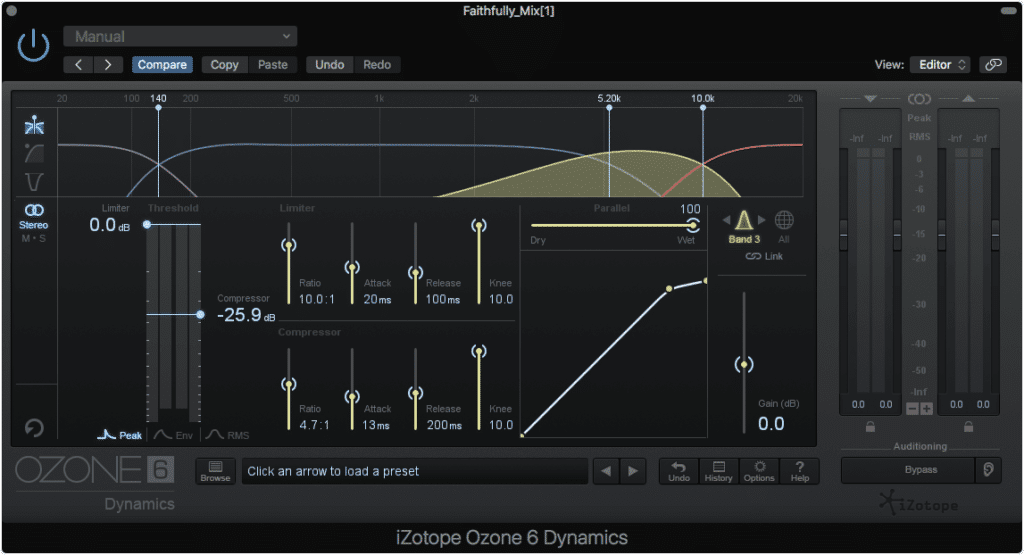
To avoid compressing an instrument or transient, use an attack time longer than the duration of that transient.
Example: if you wanted to reduce the transients of a snare, but increase the sustain and release, you could set a quick attack time, and long release time, and then attenuate the signal heavily. After doing so, increasing the output gain would also increase the sustain and release, making them more perceivable and balanced with the snare’s transient.
How do these terms relate to different genres in Christian Music?
First, let’s look at how this affects mastering for more anthemic and ethereal Christian music. Ideally, when mastering Christian music with a lot of instrumentation and reverb based processing, maintaining the transients would be paramount.
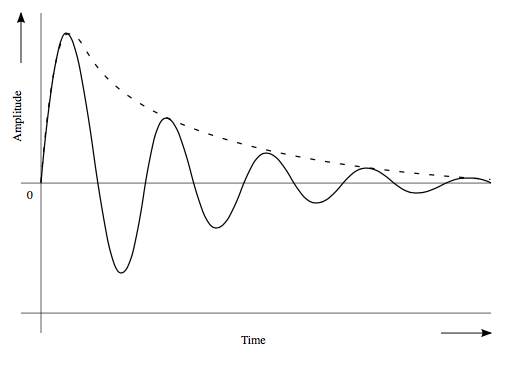
A transient has a short attack and decay, with a quiet sustain and release.
The reason being, if you were to compress these transients significantly, you’d run the risk of making the instruments and instrument groups unintelligible. In other words, the sounds would begin to blend together in a way that makes them hard to distinguish from one another.
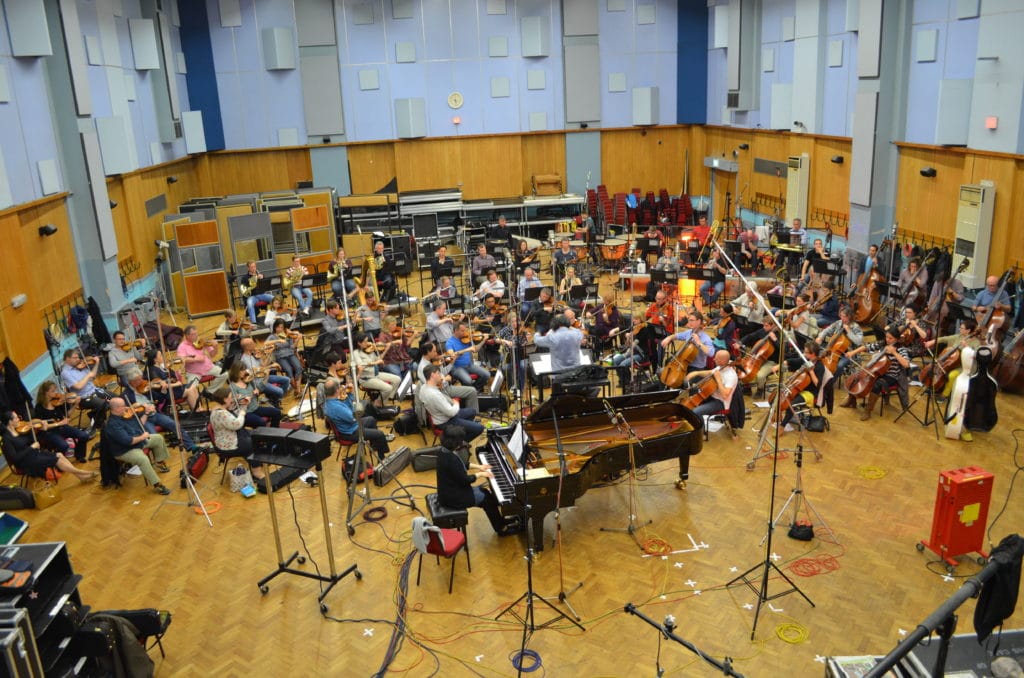
When mastering complex instrumentation, retaining transients means keeping a recording's definition.
If this occurs in an extreme way, the song will not be enjoyable to listen to, as anything that would make the song sound big, anthemic or impressive would quickly become jarring, cacophonous, and ultimately detract from the overall message of the song.
With that in mind, and referencing the definitions listed above, the best approach to an anthemic type of Christian music would be to use a slightly longer attack and shorter release times when compressing . As a result, you will leave transients intact, and retain these transients.
Again, retaining transients means you will allow the instruments to be easily identifiable. As you might imagine, this becomes more and more important, the more instruments you have playing at the same time.

In order to retain an instrument's definition, you need to leave its transients intact.
Just as important as the transients is the dynamic range , as it allows a song to build and stay exciting throughout its entirety. Often times in anthemic music, there are sections that pull back or have less instrumentation and effects.
The purpose of having these sections, it to make any section that is louder, or has more instrumentation, sound more noticeable and impressive. By allowing for dynamics in the master, these impressive sections are emphasized and in turn, support the emotional intent of the composition.
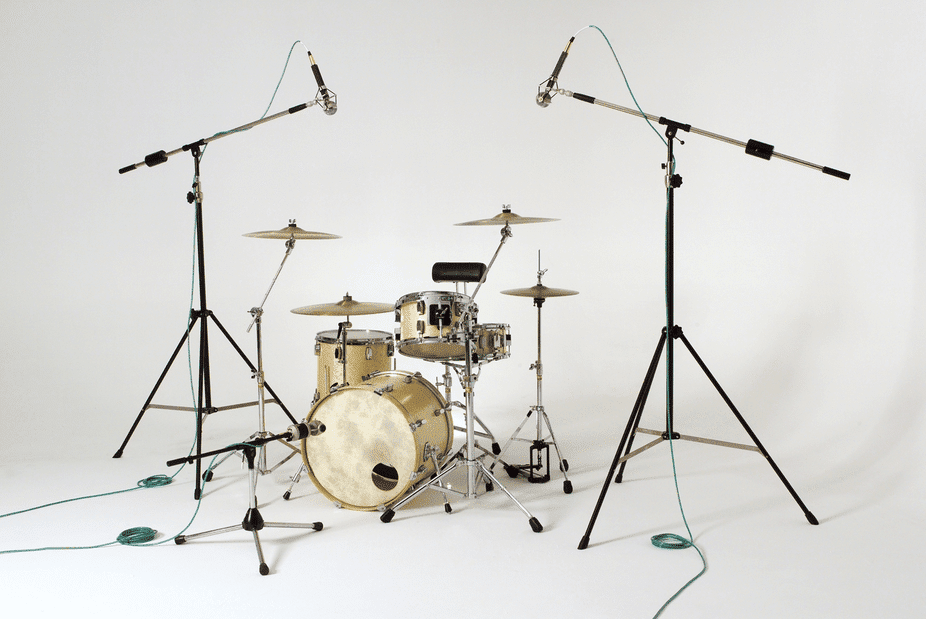
The first instrument that loses dynamics is the drums.
This relates to compression in that the more you compress, the less of this dynamic range will be in the final master. Fortunately, using a longer attack and shorter release as detailed above, will result in less overall compression, and a more dynamic master.
If you’d like to hear how retaining transients can affect a master, send us one of your mixes here:
We’ll master it for you and send you a free mastered sample.
How Do Compression, Transients, and the Dynamic Range Change with Each Sub-Genre?
As stated before, not all Christian music sounds the same. With that in mind, not all Christian music can be mastered the same way.
Certain sub-genres of Christian music call for different types and amounts of processing. Let’s take a brief look at these sub-genres now.
Christian Rock:
Like the anthemic and ethereal Christian music discussed earlier, Christian rock music often utilizes a lot of instrumentation. This means that many instruments will be playing at one time - these instruments need to be defined if the master is to avoid sounding cacophonous.

Rock music also has complex instrumentation that requires retaining transients during mastering.
Just like before, the best way to accomplish this is to use a longer attack and shorter release time on the compressor or limiter settings. This way each sound stays distinct and can combine to create a larger, more impressive sound.
Although the dynamic range of rock music can certainly vary, using mild compression on a rock music master can work well. Granted, a lot of rock music has become heavily compressed over the years; however, that arguably isn’t the best way to process a rock master.
Christian Metal:
A genre that has grown significantly over the past couple of decades, Christian metal shares a lot of musical similarities with Christian rock; however, given the increased amounts of distortion and the sheer volume of the instruments recorded, retaining transients and dynamic range becomes even more paramount.

Christian metal has grown in popularity.
When mastering Christina metal or metal music in general, retaining transients is one of the most important things you can do when mastering. This may mean using little to no compression or limiting if possible, or it may mean using compression in a very careful way.
As you can imagine, if compression is used,a longer attack and shorter release time will be needed to retain the transients.
Christian Pop:
Christian pop will typically need to be a little louder to compete with other current pop tracks on the market. That said, a little more compression will be needed to achieve this loudness.

Pop music is typically mastered louder and has a smaller dynamic range.
Fortunately, the sound people have come to expect when listening to pop music is a slightly more compressed sound. Also, what some do enjoy about a more compressed sound, in which the transients are attenuated slightly, is what is often referred to as mastering “glue.”
This “glue” is really the instrumentation blending together in a pleasant way. This blending occurs when transients are compressed, and the sustains and decays of various instruments come together.
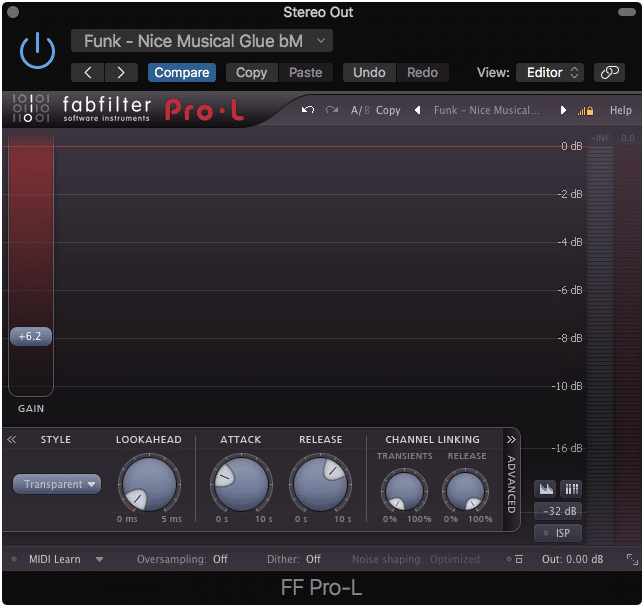
Compressing transients can help glue a mix together.
To accomplish this sound, a shorter attack and a longer release time are used when compressing. This ensures that the compressor begins working quicker, and continues to compress the signal for longer.
Compressing more of the signal will result in a smaller dynamic range.
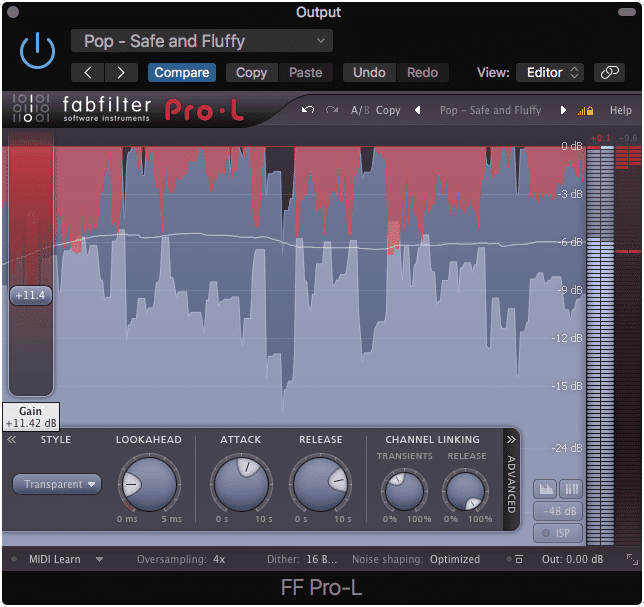
Limiting is the primary reason some masters lack dynamics.
Want to learn more about mastering, and possibly master one of your songs on your own? Check out our blog post that details some important steps:
How to Master Music
It’s full of great information if this is a process you’d like to try yourself.
What Does Analog Mastering Do for Christian Music?
Analog mastering, although not entirely different from digital mastering, offers some distinct advantages. The primary advantage of using analog mastering is the subtle harmonic generation that comes from using electrical equipment to process a signal.
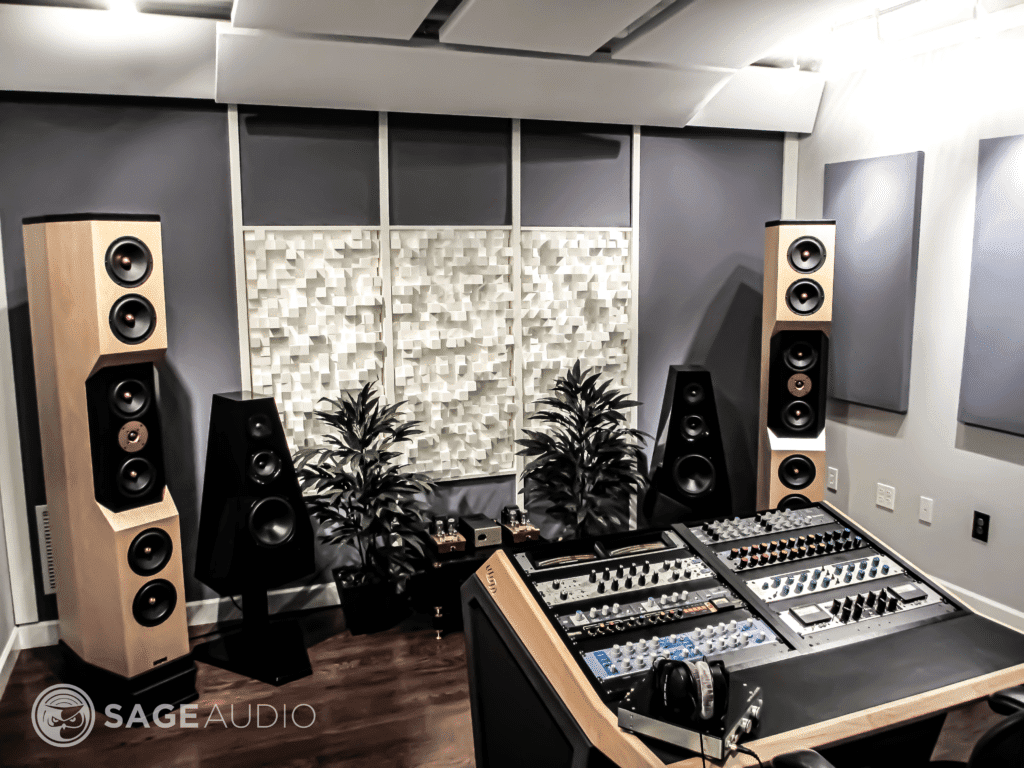
Analog mastering can help emphasize the emotionality of a composition.
As I’m sure you may have noticed, digital audio products and plugins modeling analog equipment have become increasingly popular. There are plugins that model tape machine, vinyl record cutters, analog channel strings and equalizers, and so on.
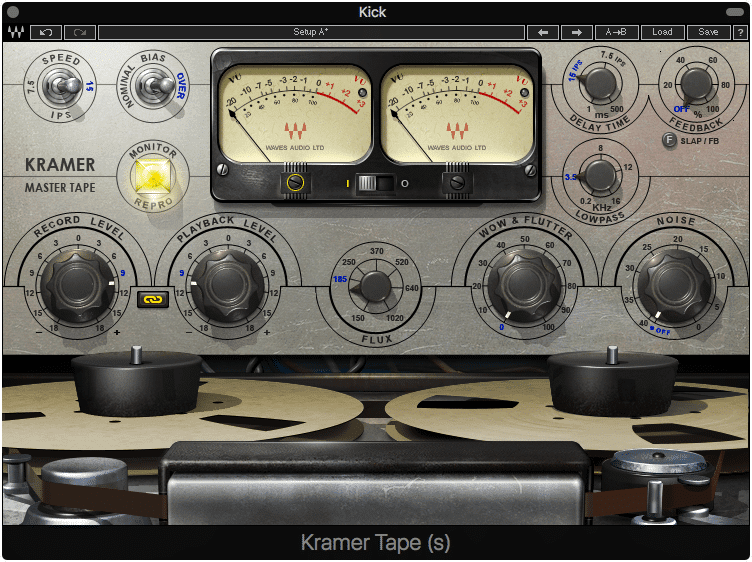
Analog emulation is used to recreate the harmonics and tonality analog equipment creates.
The reason for this increased popularity is because the right analog gear simply sounds good. Digital doesn’t have this same harmonic generation and so producers and engineers are looking to recreate that sound through these plugin emulations.
Although we’ve been discussing compression, transients, the dynamic range, the ADSR envelope a fair amount, another incredibly important aspect of getting a good master is introducing the right amount of harmonics.
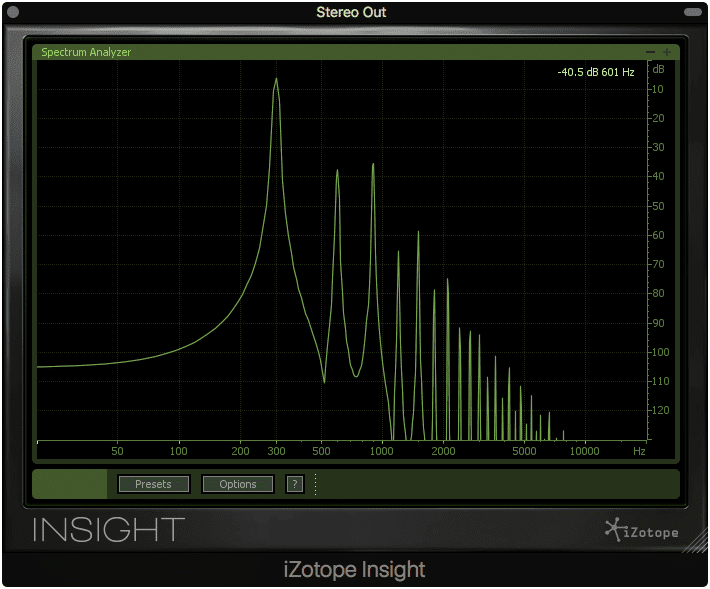
Harmonics increase in amplitude and always relate to the fundamental frequency.
Harmonics are frequencies that correlate to the fundamental frequencies in your recording. They ascend in frequency and typical decrease in amplitude the farther from the fundamental they become.
Introducing these harmonics makes the fundamental easier to hear, and adds a certain amount of complexity to the sound source, by filling in the frequencies relevant to the key of the song. Usually, when someone claims a recording or master sounds full, it is because of this harmonic generation.
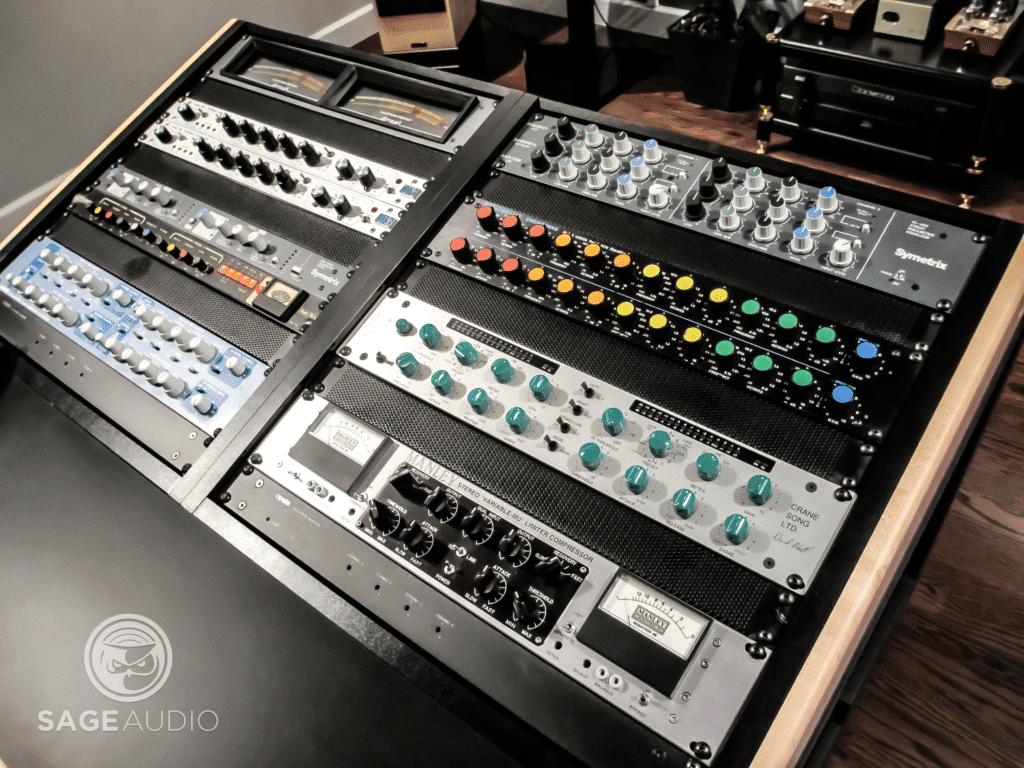
Adding harmonics results in a full and complex sound.
The number of harmonics introduced during the mastering process will vary from genre to genre; however, in Christian music, especially the more anthemic music, these harmonics can truly add a lot of power to the master, making it sound full and impressive.
These harmonics can help to accentuate the aspects of the composition that are meant to sound large and concert-like to the listener. As a result, many Christian artists choose to use analog mastering, as they find that the subtle harmonic generation that comes from the type of processing truly benefits their song, EP or album.

Tubes and other analog equipment add subtle harmonic generation.
As for the sub-genres listed earlier, harmonics can be a good thing to add as well. For rock, they make the master sound fuller and large. For pop, they have this same effect.
The only sub-genre in which introducing a fair amount of harmonics may have a negative impact on the sound is with metal. Considering metal already introduces significant distortion, which is harmonic generation as well, adding more may help in certain circumstances, but may not be entirely necessary.
Want to know more about analog mastering? Take a look at our blog post on the topic:
It’s full of relevant information on analog mastering.
Conclusion
Mastering for Christian music can certainly vary from project to project. Considering Christian music can be entirely unique, mastering for Christian music will need to be unique as well.
With that said, there are still certain fundamental aspects of mastering that can help us to better understand the production aspects of Christian music. These aspects become better understood when considering how to introduce compression and harmonic generation during the mastering process.
Understanding to what extent these forms of processing need to be introduced means understanding what genre, sub-genre, or mix type you’re working with during the mastering stage.
Ultimately, mastering helps Christian recordings by understanding how the composition reflects the message of the music, and then by accentuating these aspects of the composition. It can make the anthemic more impressive, and the reserved and reflective more nuanced and detailed.
If you'd like to hear what analog mastering can do for your mix, send it to us here:
We’ll master it for you and send you a free mastered sample.
Have you ever had your Christian music mastered?




